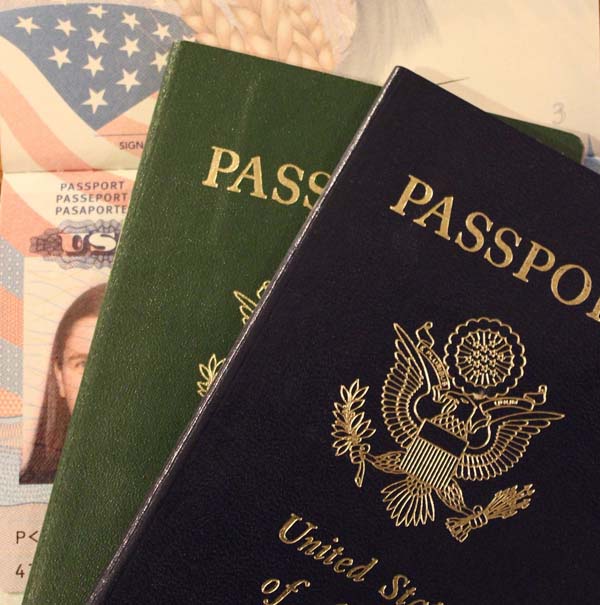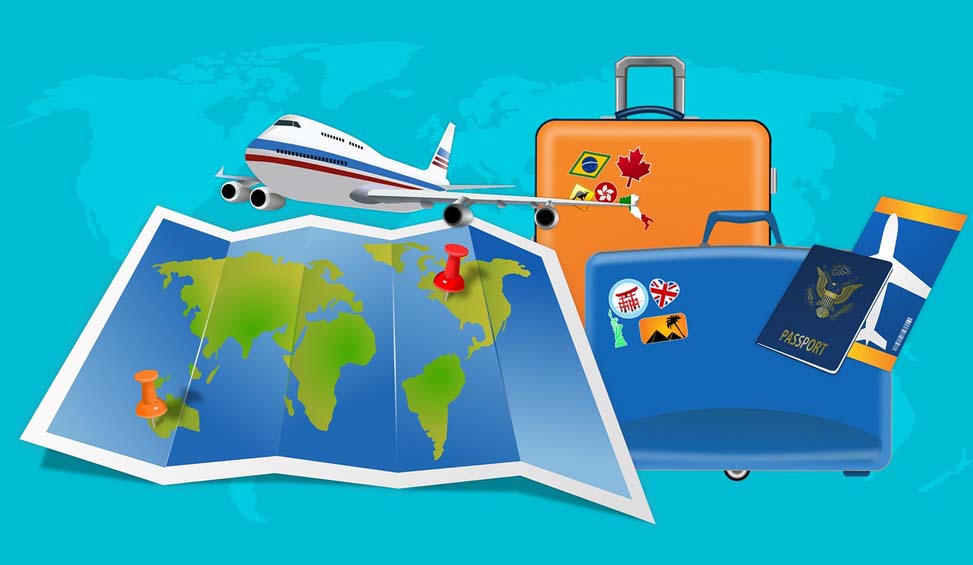Dreaming of exotic adventures, pursuing new opportunities abroad, or reuniting with loved ones across borders? Well, before you pack your bags, there’s one crucial step: the visa application. And in this intricate process, one often overlooked element can make all the difference – accurate visa translation.
For many, navigating the labyrinthine world of visa applications can feel overwhelming. But trust me, amidst the mountains of paperwork and official jargon, there’s a hidden hero often taken for granted – the visa translator. These linguistic ninjas are the ones ensuring your story gets told loud and clear, bridging the gap between your aspirations and that coveted visa stamp.
As individuals increasingly traverse the world for myriad reasons — be it for business, tourism, or seeking refuge — the complexities of visa applications become apparent. The intricacies of these documents, often laden with legal nuances and cultural specifics, necessitate a bridge to overcome the barriers posed by language diversity. Enter visa translation: a crucial facilitator that not only ensures effective communication between applicants and immigration authorities but also plays a fundamental role in upholding legal compliance.
1.What is visa translation?
Visa translation refers to the process of translating documents related to visa applications and immigration. When individuals apply for visas to travel or move to another country, they often need to submit various documents, such as passports, identification papers, financial statements, and certificates. These documents may be in a language different from that of the country’s immigration authorities.
Visa translation involves converting these documents into the official language(s) of the destination country to ensure that immigration officials can understand and evaluate the information accurately. The translated documents help in the visa application process by providing clear and precise information about the applicant’s background, purpose of travel, financial status, and other relevant details.
2.Types of visa translation
Visa translation encompasses a variety of documents and types of information that may need translation during the visa application process. Here are some common types of visa translation:
①Passport Translation:
- Translation of the entire passport or specific pages containing personal details, travel history, and visa stamps.
②Identification Document Translation:
- Translation of national identification cards, driver’s licenses, or other official identification documents.
③Certificate of Birth/Marriage/Divorce Translation:
- Translation of vital documents such as birth certificates, marriage certificates, or divorce decrees to provide proof of familial relationships or marital status.
④Financial Document Translation:
- Translation of bank statements, financial affidavits, or any documents providing evidence of financial stability and capability to support oneself during the intended stay.
⑤Educational Transcript and Certificate Translation:
- Translation of academic transcripts, diplomas, or certificates to demonstrate educational qualifications.
⑥Employment Letter/Contract Translation:
- Translation of employment-related documents, including job offer letters, employment contracts, or verification letters from employers.
⑦Travel Itinerary Translation:
- Translation of travel-related documents such as flight itineraries, hotel reservations, and tour plans.
⑧Medical Record Translation:
- Translation of medical records or certificates to prove health status or vaccination history.
⑨Legal Document Translation:
- Translation of legal documents such as affidavits, court orders, or any documents relevant to legal matters.
⑩Letter of Intent/Invitation Translation:
- Translation of letters of intent, invitation letters, or any communication supporting the purpose of travel.
It’s important to note that the specific documents required for visa applications vary depending on the type of visa and the destination country’s immigration policies. Professional translators with expertise in legal and immigrationrelated translations are often engaged to ensure the accuracy and acceptance of the translated documents during the visa application process.

3.Why is visa translation so important?
Visa translation is important for several reasons, as it plays a crucial role in facilitating international travel, ensuring legal compliance, and promoting effective communication. Here are some key reasons why visa translation is so important:
①Legal Compliance:
- Visa applications often require the submission of legal documents, such as identification papers, financial statements, and certificates. Accurate translation ensures that these documents comply with the legal requirements of the destination country, reducing the risk of delays or complications in the visa approval process.
②Communication Facilitation:
- Immigration offices and consulates operate in diverse linguistic environments. Visa translation bridges the language gap, facilitating clear and effective communication between visa applicants and immigration authorities. This is crucial for the accurate understanding of the applicant’s background, purpose of travel, and other essential details.
③Document Precision:
- Visa documents often contain sensitive information, and precision in translation is vital to maintaining the intended meaning and context. Inaccurate translation may lead to misunderstandings, misinterpretations, or errors that can impact the outcome of the visa application.
④Avoidance of Rejections and Delays:
- Errors in visa documentation, including translation mistakes, can lead to rejections or delays in the visa approval process. Visa translation services help minimize the risk of such setbacks, ensuring that all documents are accurately translated and comply with the requirements of the destination country.
⑤Cross-Cultural Understanding:
- Accurate translation contributes to cross-cultural understanding by conveying the applicant’s background, intentions, and cultural context effectively. This fosters a more positive and informed assessment by immigration officials, reducing the likelihood of misunderstandings or biases.
⑥Economic and Business Impact:
- For individuals traveling for business purposes, visa translation is crucial in facilitating economic transactions, partnerships, and international business activities. It enables professionals to navigate the complexities of cross-border trade and investment.
⑦Tourism and Hospitality Industry Support:
- Visa translation supports the tourism and hospitality industries by enabling tourists to submit accurate and understandable documentation. This contributes to the growth of international tourism and helps countries welcome visitors more efficiently.
⑧International Education:
- Students seeking visas for studying abroad often need to submit educational transcripts and certificates. Precise translation of these documents is essential for evaluating academic qualifications and ensuring compliance with the destination country’s educational requirements.
In essence, visa translation serves as a linchpin in the global movement of individuals, fostering a harmonious and efficient process for both applicants and immigration authorities. It is an indispensable tool in creating a world where people can travel and interact across borders with clarity, understanding, and adherence to legal standards.
4.Risks of subpar visa translation
While the importance of accurate visa translation is undeniable, let’s delve deeper into the potential risks associated with subpar translations. These risks can be far-reaching, impacting your finances, legal standing, and even emotional well-being.
①Visa Rejection: The most dreaded consequence of inaccurate translations is undoubtedly visa rejection. Even minor errors or inconsistencies can raise red flags for immigration officials, causing them to question the validity of your application or misunderstand your intentions. This can lead to immediate denial, forcing you to restart the entire process with added time and financial burdens.
②Legal Complications: In extreme cases, mistranslations could be interpreted as misrepresentation or even fraud, particularly if they distort crucial information or conceal relevant details. This can lead to legal consequences, including fines, penalties, or even travel bans.
③Financial Costs: Subpar translations often lead to wasted time and money. Rejected applications due to translation errors necessitate re-submissions and additional translation fees, significantly impacting your finances. Furthermore, delays caused by inaccurate documents can disrupt travel plans and business deals, leading to further financial losses.
④Emotional Distress: Dealing with a rejected visa application due to translation issues can be incredibly stressful and disheartening. The disappointment, uncertainty, and potential delays can take a toll on your emotional well-being, affecting your personal and professional life.
⑤Reputational Damage: Inaccurate translations can damage your professional reputation, particularly if they occur in business-related visa applications. The impression of carelessness or lack of attention to detail can negatively impact your credibility and potential business opportunities.
Beyond these individual risks, subpar visa translations can also have broader consequences:
- Erosion of trust in the process: When inconsistent or inaccurate translations lead to denials, it can undermine public trust in the entire visa application process, creating unnecessary frustration and confusion.
- Increased workload for immigration officials: Dealing with poorly translated documents adds to the workload of immigration officials, potentially slowing down the process for everyone.
5.Benefits of professional visa translation
Navigating the visa application process can feel like traversing a complex maze, and amidst the forms, fees, and deadlines, one element often takes a backseat – visa translation. But just like a sturdy map and compass, professional visa translation can guide you through the labyrinth, unlocking a treasure trove of benefits for your application:
①Accuracy Ensures Success: Subpar translations could be the proverbial banana peel causing you to slip at the visa finish line. Even minor inaccuracies can raise red flags for immigration officials, leading to misunderstandings, misinterpretations, and ultimately, rejection. Professional translators, with their expertise in legal terminology and cultural nuances, ensure your story is told flawlessly, minimizing errors and maximizing your chances of approval.
②Compliance Makes it Effortless: Each country has its own unique set of formatting and language requirements for visa applications. Trying to decipher these regulations yourself can be a headache. Professional translators understand these intricacies and adapt your documents accordingly, ensuring they tick all the boxes and avoid technical pitfalls that could lead to delays or denials.
③Cultural Sensitivity Bridges the Gap: Language is more than just words; it’s a cultural tapestry woven with specific references and legal terminology. Professional translators have a deep understanding of these cultural nuances and adapt your documents to resonate with the target language community. This ensures your documents not only make sense linguistically but also culturally, leaving a positive and memorable impression on immigration officials.
④Professionalism Paves the Way: Your visa application is your first impression on foreign authorities. Flimsy translations riddled with grammatical errors or awkward phrasing can paint a negative picture of your credibility and seriousness. Investing in professional translations, with their polished language and attention to detail, showcases your commitment to the process and enhances the overall professionalism of your application, giving you a significant edge.
⑤Peace of Mind is Priceless: The anxiety of waiting for a visa decision can be overwhelming. But with professional visa translation, you can rest assured knowing your documents are accurate, compliant, and culturally sensitive. This peace of mind allows you to focus on the excitement of your upcoming journey, not the fear of potential rejections or delays.
Beyond these immediate benefits, professional visa translation offers long-term advantages:
- Improves travel experiences: By ensuring clear communication and accurate documentation, professional translations can pave the way for smoother border crossings and visa renewals in the future.
- Protects your rights: Inaccurate translations can have legal ramifications. Professional translations ensure your rights and intentions are clearly understood, minimizing the risk of misunderstandings and legal troubles.
- Opens doors to opportunities: Whether seeking education, employment, or simply new adventures abroad, professional visa translation can be your key to unlocking a world of possibilities.

6.Optional Additional Sections
Success Story: Bridging the Gap with Cultural Nuances
- Applicant: Maria, a talented Spanish architect, applied for a work visa to design sustainable housing in rural Nepal.
- Challenge: Translating her portfolio and cover letter while preserving the cultural context of her proposed project.
- Solution: Maria partnered with a translator experienced in both architectural terminology and Nepali culture. The translator adapted her documents to resonate with the local audience, highlighting the cultural sensitivity and community impact of her work.
- Result: Maria’s visa application was approved! The detailed and culturally-aware translations impressed the immigration authorities, securing her dream job and opportunity to contribute to a sustainable future in Nepal.
Failure Story: Lost in Translation, Lost Opportunity
- Applicant: David, a young entrepreneur, sought an investor visa in China to launch his innovative tech startup.
- Challenge: David entrusted a friend with basic Mandarin skills to translate his business plan and financial documents.
- Solution: Unfortunately, the friend’s translations contained inaccuracies and awkward phrasing, failing to capture the technical specifics and potential of David’s venture.
- Result: The visa application was denied. The inaccurate translations raised concerns about David’s professionalism and the viability of his project, leading to a missed opportunity to expand his business into the lucrative Chinese market.
Those cases study highlight the unexpected benefits of choosing a reliable and transparent translation service. Remember, your visa application is your gateway to a world of possibilities. Don’t leave its fate to chance; choose the right translator, translate with confidence, and unlock your global dreams!
7.Choosing the Right Visa Translation Service
Jinyu Translation Company excels in visa translation with a specialized focus on legal and immigration documentation. Its commitment to accuracy and cultural sensitivity ensures that translations meet both legal standards and convey the intended message appropriately. Renowned for efficiency, the company handles large volumes of documents promptly, aiding clients facing visa application deadlines. With robust confidentiality measures, comprehensive customer support, and a reputation for reliability, Jinyu Translation Company stands out as a trusted partner for streamlined and accurate visa translations.
Your visa application is your passport to a world of possibilities. Don’t leave its fate to chance; investing in professional visa translation can be the difference between success and disappointment. Choose wisely, translate accurately, and embark on your global adventure with confidence and a clear voice that resonates with the world.
Remember, accurate visa translation is an investment in your dreams. Don’t get lost in translation – let your story shine through loud and clear!
FAQ
1.Q: Why is visa translation necessary for international travel?
A: Visa translation is necessary to overcome language barriers, ensuring that immigration authorities understand and evaluate visa documents accurately, facilitating a smooth application process.
2.Q: Can I translate my own visa documents using online tools?
A: While online tools may assist, professional visa translation is recommended for accuracy and legal compliance. Professional translators understand the nuances of immigration terminology and cultural sensitivities.
3.Q: Are there specific certifications or qualifications for a professional visa translator?
A: Professional visa translators often hold certifications in translation and specialize in legal or immigration-related fields. Relevant qualifications and experience contribute to accurate and reliable translations.
4.Q: What measures ensure the confidentiality of my visa documents during translation?
A: Reputable translation services, like Jinyu Translation Company, implement strict confidentiality measures to safeguard client information, ensuring the secure handling of sensitive visa-related documents.
5.Q: How long does it take to get visa documents translated professionally?
A: Timelines vary based on document volume and service provider. However, professional translation services, such as Jinyu Translation Company, are known for their efficiency in delivering accurate translations within reasonable timeframes.
6.Q: Can I use the same translated documents for multiple visa applications?
A: It’s recommended to check the specific requirements of each visa application. Some countries may have different document standards, and updated translations may be necessary.
7.Q: Do immigration authorities accept digital or electronic copies of translated documents?
A: Policies vary, but many immigration authorities accept digital copies. It’s crucial to check the specific requirements of the destination country and ensure compliance with their preferences.
8.Q: How can I verify the accuracy of a translated document for my visa application?
A: Reputable translation services provide certifications and ensure that translations adhere to legal standards. Additionally, seeking feedback or reviews from previous clients can offer insights into the service provider’s reliability and accuracy.


